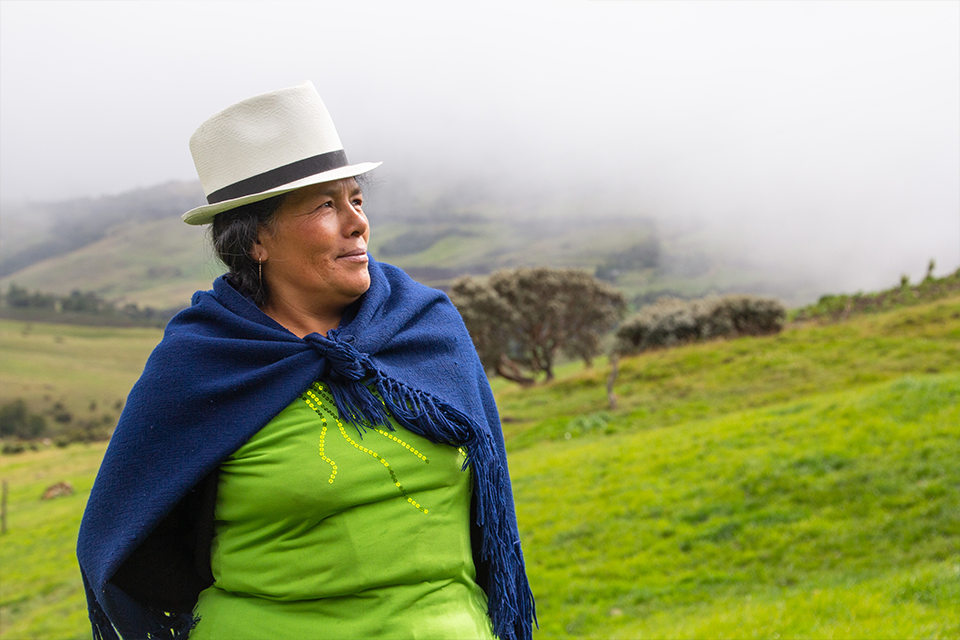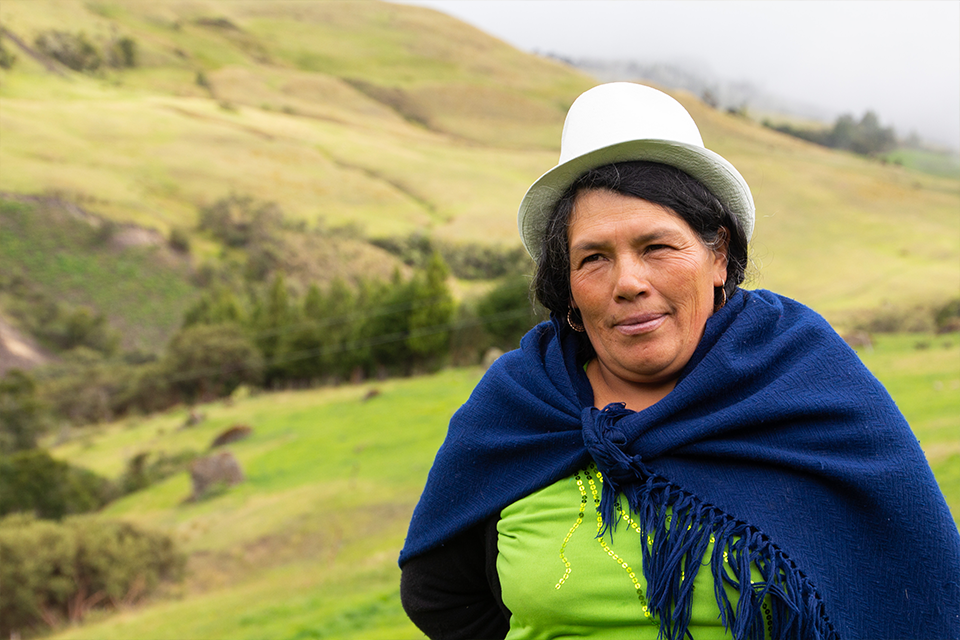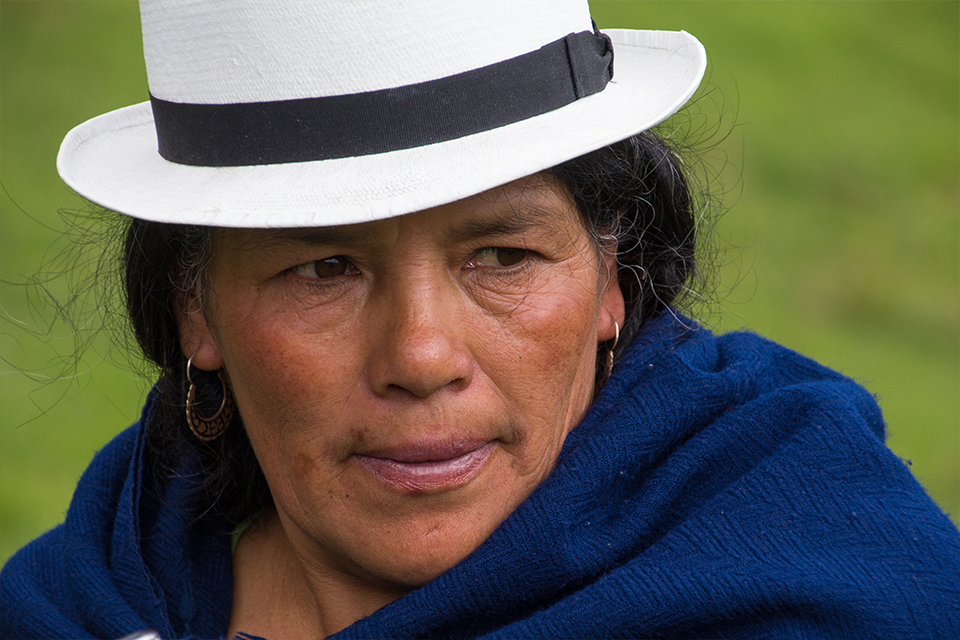An equal future in the páramo
By: Zoila Dolores Piedra GuamánDate:
I am 50 years old and have been married for 30 years. I have four children, the oldest is 28 years old and the youngest is 13. I was born in a sector called Las Nieves. I only went to school for two years. I dropped out because my parents passed away, so I couldn't go anymore. I really suffered a lot during my childhood because I lost my mother when I was 6 years old and that was hard, very painful and I had to stay at home with my siblings and when I was 12 years old my father passed away.
I really liked the UN Women project, it has given us a lot of experience, I liked the experience of learning how to protect water sources, that is one's life, without water we cannot live. They gave us some wire, we fenced off the springs, and when it starts to rain more, we are going to plant native plants here, such as the quinoa plant, to protect the water. Here I have a small spring that I have to take care of.

We learned how to make bokashi, organic fertilizers, biol, a preparation to protect the plants from pests; we also made some ash broths.
We also had workshops in which we learned a lot of things, especially about equality. We got quite a lot of experience from that. My husband encouraged me to go, we only had to communicate in order to understand each other, to do the work between both of us. He took my place in the domestic chores, watching the small animals, so on the days when I went to the workshop he was in charge of doing those things.

Now we have to put everything into practice. Everything is easy to apply, it just depends on us. Now that it's not raining yet, we haven't planted, but the rains will come. Then we are going to apply what we have learned about the gardens and organic fertilizers, and we are going to see if we can produce purely organic things and also sell them.
I do have in mind what I can produce and sell in the farmers' markets. We always plant potatoes, so we have enough to eat and we have enough to go out and sell.
To live better we plan to continue with this experience, making the patches, eating healthy, without chemicals.
We no longer need to buy vegetables from outside, since we produce them ourselves.
I would like the community to move forward for the future. Even if we pass away, our children, grandchildren and great-grandchildren will remain. That is why it is up to us to protect the páramo, which is the first base for us, our source of life.

--
This editorial piece is an excerpt from the publication "Agua, mujeres, páramo: poner la vida en el centro de la vida", an editorial product that systematizes testimonials from the beneficiaries of the project "Sustainability of the páramo from a gender perspective", implemented with the Autonomous Decentralized Government of the Province of Azuay, Ecuador and financed by the City of Madrid.
The opinions contained in this blog are the responsibility of the author and do not reflect an official position of UN Women or any other agency of the United Nations System.